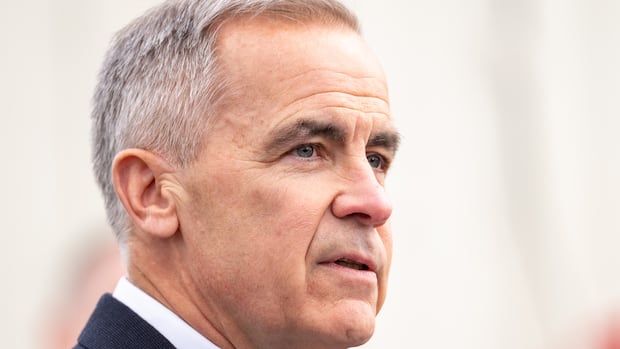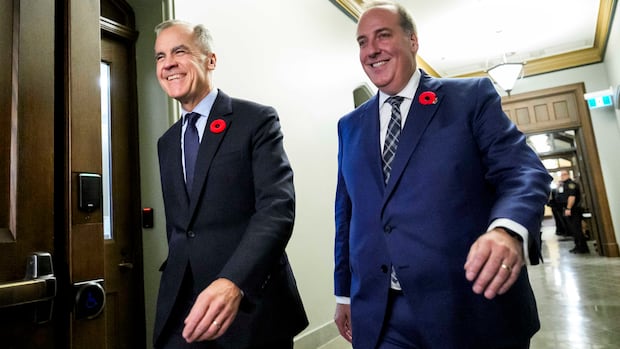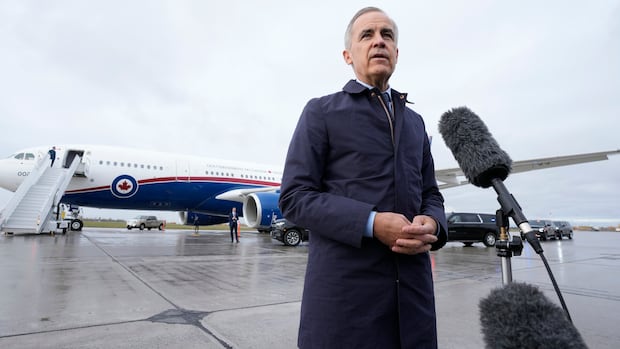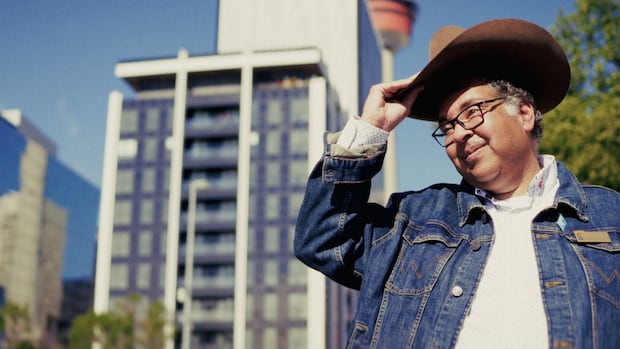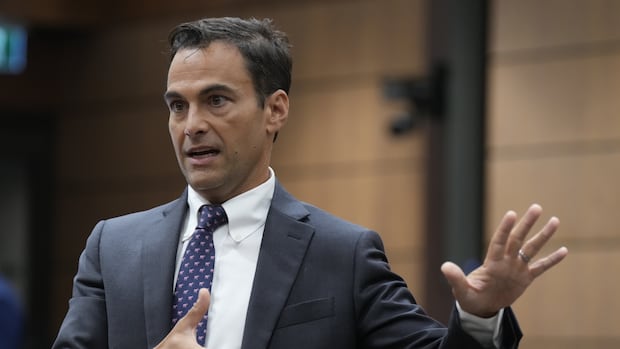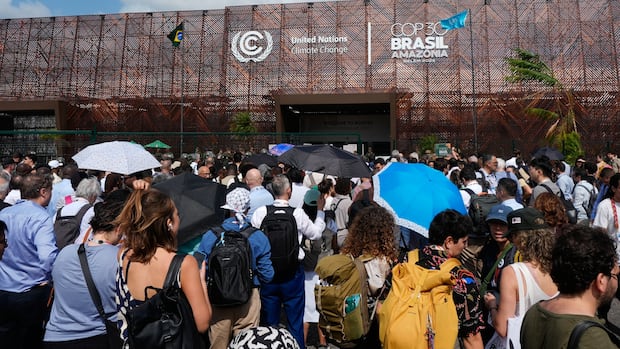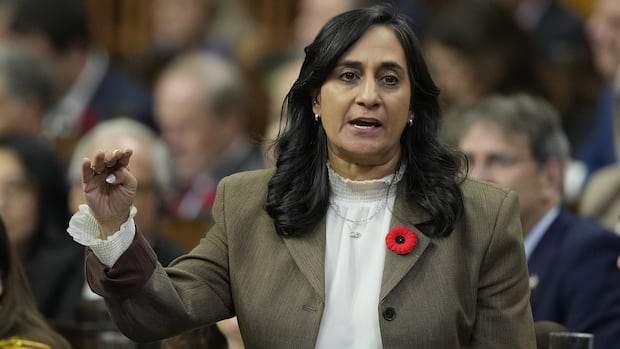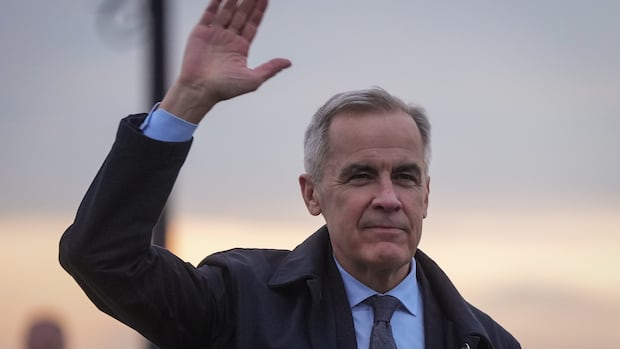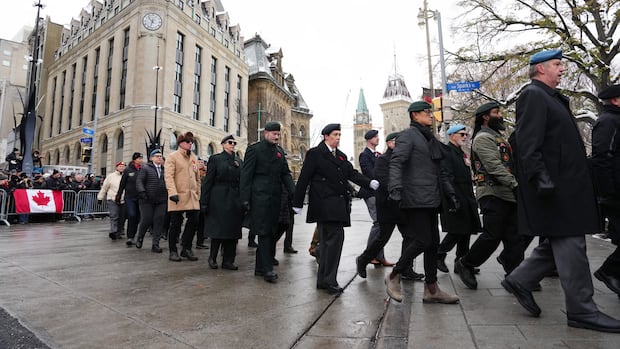Attempting perhaps to turn a story about his own leadership into a story about whether the Canadian news media have unfairly focused on dissent within the Conservative caucus, Pierre Poilievre challenged reporters on Wednesday to pay as much attention to the recent criticism levelled against the federal government's budget by Liberal MP Nathaniel Erskine-Smith.
Of course, that Erskine-Smith might deviate from the Liberal government's official line is hardly surprising at this point. The left-leaning Liberal backbencher has spent much of the past decade displaying a willingness to go his own way, so much so that many members of the parliamentary press gallery probably no longer consider it newsworthy when he does.
Whatever his quibbles and criticisms, Erskine-Smith also still supports the government and the budget.
But for the sake of assessing last week's budget, Erskine-Smith's critique offers a potentially useful starting point.
"I joked with colleagues that it’s a pretty good Progressive Conservative budget. A joke! But hey, some conservatives agree," Erskine-Smith concluded, linking to a video of former Conservative MP Chris d'Entremont walking into the Liberal caucus room after crossing the floor.
WATCH | Nathaniel Erskine-Smith on the budget:Ontario Liberal MP Nathaniel Erskine-Smith, speaking to CBC’s Power & Politics host David Cochrane, responds to Conservative Leader Pierre Poilievre's accusations that his critique of the party’s budget indicates ‘turmoil’ within the Liberal caucus.Jokingly or not, that isn't the first time someone has suggested Prime Minister Mark Carney is something of a progressive conservative. But if this is a Progressive Conservative budget, it would be — unofficially — the first such budget tabled in Parliament since 1993 — the last budget of Brian Mulroney's government and the last budget before the PC Party was shattered in that year's federal election.
That party — its dichotomous name the result of a marriage in 1942 between the Conservative Party of Canada and the leader of Manitoba's Progressive Party — limped along for another decade before being subsumed into the modern Conservative Party that Poilievre now leads.
As Poilievre has made clear, it's not the budget he would have tabled. But Carney might be content with the impression that it's also not the budget that Justin Trudeau would have tabled.
What Trudeau policies survived?The federal budget tosses aside the Trudeau-era luxury tax on yachts and private planes, halts the former prime minister's signature promise to plant two billion trees (Carney will suffice with one billion) and holds out the possibility that the cap on greenhouse gas emissions from the oil and gas sector will be abandoned.
While the Trudeau Liberals always seemed lukewarm on liquefied natural gas, the Carney government has embraced it, and the budget restores a tax credit for the LNG development that had expired in 2024.
The 2025 budget also cements a number of previously announced changes: the repeal of the consumer carbon tax, the reversal of changes to capital-gains taxes and the end of the digital services tax.
In previous budgets, the Trudeau government committed to cut spending in certain areas by $15.8 billion over five years and eliminate 5,000 positions in the federal public service. The first Carney budget aims to shrink the size of the public service by 40,000 and find $44 billion in spending cuts over four years.
Beyond such particulars, a simple word count shows at least a change in emphasis. Carney promised a renewed focus on economic fundamentals, and his government's first budget makes 131 references to "productivity" — twice as many as the last Trudeau budget.
At the same time, this budget was not a wholesale repudiation of the Trudeau era.
All of the Trudeau government's major social initiatives — the Canada Child Benefit, dental care, federal funding for child care — remain in place. While most federal departments are being asked to cut their budgets by 15 per cent, some Trudeau-era priorities are apparent in some of those that are only being asked to reduce spending by two per cent — namely, the departments for Crown-Indigenous Relations, Indigenous Services and Women and Gender Equality.
And though the consumer carbon tax is gone and the cap on oil and gas emissions might follow suit, the Carney government is looking to strengthen and solidify the industrial carbon price and seems willing to keep some version of many other Trudeau-era regulations in place.
Many Canadians wanted changeDoes that add up to the sort of budget that a PC government could table? Perhaps. Brian Mulroney was business-oriented and a fiscal conservative — Mulroney's last budget aimed to reduce program spending to 13.9 per cent of GDP, while Carney's first budget sees program spending falling to 15.4 per cent of GDP — but he was also once named the "greenest prime minister" for his efforts on environmental issues.
If this is a PC budget, it might say something about how federal politics has shifted since 1993 — or even since 2024. As Erskine-Smith noted, it was at least a budget that could be supported by one former Progressive Conservative.
Polling conducted around this past spring's election showed that Canadians were evenly split when asked whether the vote was about responding to U.S. President Donald Trump or changing the government in Ottawa. And Carney's Liberals were able to win nearly a quarter of those voters who prioritized change.
WATCH | At Issue: Carney's major projects:At Issue this week: Prime Minister Mark Carney unveils the next round of nation-building projects he says will transform Canada’s economy. Conservative Leader Pierre Poilievre tries to move past party struggles. And François Legault’s fight with Quebec doctors.In other words, while the Liberals again won a plurality of seats in the House of Commons, there was still a healthy appetite for change — and convincing Canadians that he could deliver some change may have been key to Carney holding on to power.
"I chose to enter politics because I felt we needed big changes in this country," Carney said on election night. "But big changes guided by strong Canadian values."
He might hope Canadians now conclude that those words describe the budget. But Erskine-Smith's critique flags at least two potentially significant issues with change — or the possible lack thereof.
A Liberal critiqueThe first is climate change.
The Liberals aren't in full retreat from the Trudeau agenda, and the government can still argue that it is doing much more than a Conservative government would, but the exact shape of Carney's climate plan is still unclear — and its embrace of LNG could make the task harder, not easier. And if the Liberals severely weaken their own credibility on climate change, they risk throwing a lifeline to a weakened NDP.
The second vulnerability is housing.
While the budget extends funding to Build Canada Homes, the new agency that will be responsible for spurring a wave of affordable housing, the government is so far stopping short of what it promised to do in the spring. A promised tax incentive for rental construction was notably missing.
The cost of housing and other affordability concerns remain the heaviest cudgel for Poilievre to wield against the Liberal government. And it's likely that when many Canadians were looking for change this spring, it was things like the price of buying or renting a home that they had most in mind.
The Carney government should still have time to make good on its platform commitments, unless the budget — whether you consider it a Liberal budget or a Progressive Conservative budget — is abruptly defeated in the House of Commons on Monday. But ahead of that vote, Carney can at least count on the support of both Chris d'Entremont and Nathaniel Erskine-Smith.


